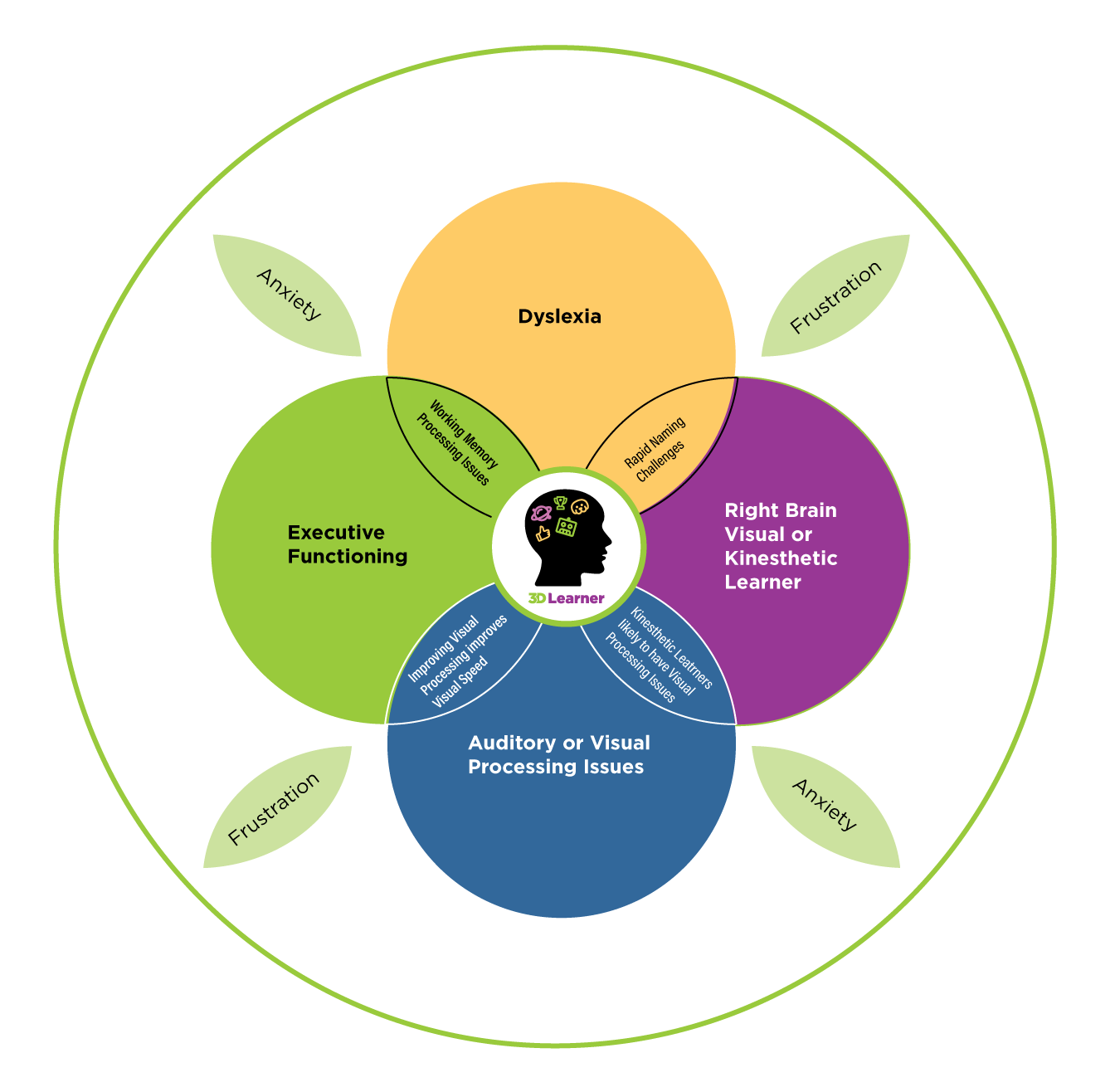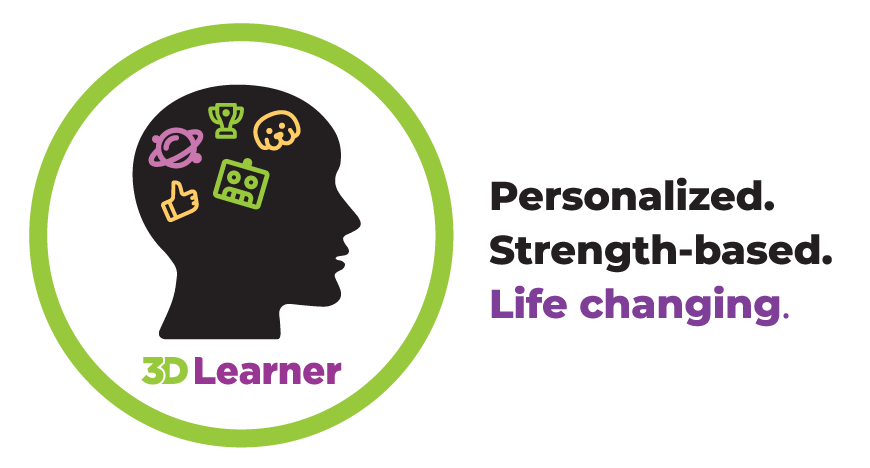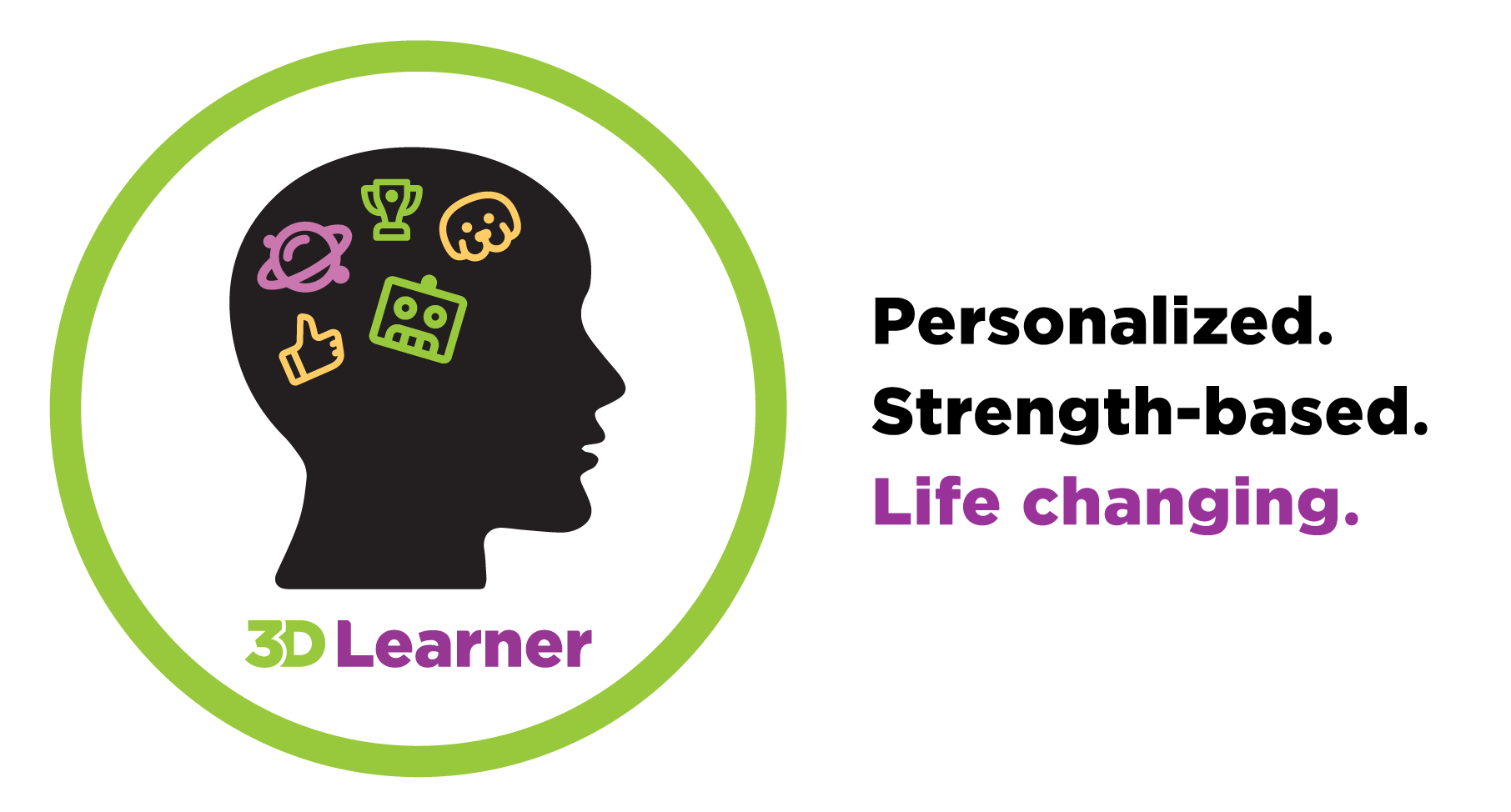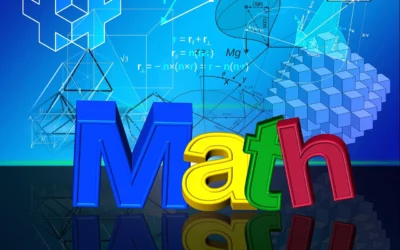Parenting a bright right brain kinesthetic learner has always been tough. Essentially, these are right brain learners in a left brain world. That is, schools often are designed for kids who are left-brain learners, those who are logical, sequential and auditory learners. With the pandemic, we have seen the challenges for the right brain kinesthetic learner, with reading, reading comprehension, math word problems and anxiety and frustration challenges that are often significant.
In this blog post, we explore the:
- Unprecedented gaps these kids have
- Two issues that are often missed, “is your child a right brain kinesthetic learner?” and “does your child have a visual processing challenge?”
- Threats and opportunities facing these bright right brain kinesthetic learners
- The strengths and challenges they often have related to reading, reading comprehension and math word problems
- Assessing your child’s present level of performance and deciding what is important
- How you can assess for success and have a conversation
Note, for a select group of parents, the threat and opportunities may pose an immediate challenge. We are seeing cases where:
- Grade retention is now a risk
- Private schools are far harder to get into and in some cases, and some struggling students are not being invited back
- Parents recognize the risks and opportunities and want to discuss how their child can make significant gains over the summer
If you want to schedule a “I want help now conversation”, you can do this by calling us at 561-361-7495 or clicking here to find a mutually agreeable time to have a conversation.
“Is Your Child a Right Brain Kinesthetic Learner?”
Over the last decade, there has been a great deal of focus on dyslexia, executive function issues and anxiety. All three are legitimate concerns that often impact the right brain kinesthetic learner.
Two issues that often missed are: is your child a right brain kinesthetic learner and whether your child has a visual processing challenge.
To help you understand whether your child is a right brain kinesthetic learner, or has a visual processing challenge, we have created two screening tools you can access by clicking on one or both links below:
- Is your student a Right Brain Kinesthetic Learner?
- Does my child have a visual processing challenge?
Note, knowing your child’s present level of performance in key areas is often an eye opener. . When mom and dad realize how far below grade level their child is, it often spurs action.
Too often a school uses reading levels as an indication of reading comprehension. That is, they believe that how fluently a child reads is a good indication of their comprehension level. We have seen cases where:
- A student’s reading was at the 9th grade level and their reading comprehension was at the 2nd grade level
- A 5th grader was reading at the 5th grade level and his comprehension was at the 1st grade level
If you may want to schedule a “I want help now conversation”, you can do this by calling us at 561-361-7495 or clicking here to find a mutually agreeable time to have a conversation.
Many of our students have two, three, four or all five of the challenges described in the Infographic below:

One of the Keys to Improving Reading, Reading Comprehension and Math Skills for the Right Brain Kinesthetic Learner, is to find out whether your child is a right brain kinesthetic learner and whether your child has visual processing, executive function challenges or dyslexia by assessing for all these issues.
If you would like to learn more about how we assess for these challenges, you can visit our page “Assessing for Success”.
If you may want to schedule a “Conversation on Assessing for Success”, you can either call us at 561-361-7495 or click here to find a mutually agreeable time to have a conversation on Assessing for Success.
The Pandemic Impacted Reading, Reading Comprehension, and Math Skills, While Dramatically Increasing Anxiety and Frustration
Many students are facing 1, 2, 3 or all 4 of the following challenges:
- They just have not mastered the decoding and phonemic awareness skills needed to read fluently. While some of these students may have dyslexia, many more are just not reading as fluently as they should.
- Reading comprehension gaps are wider than at any point in recent history.
- Math, especially math word problems, are now a major issue for many kids. If a student got lost three years ago when schools went to virtual schools, the math challenges often got worse. This is because math lessons build on the prior lessons. More kids than ever are struggling and some now hate math.
- Frustration and anxiety are now bigger issues for more kids.
Note, the frustration and anxiety is often caused by the problems with reading, reading comprehension and/or math.
For the Right Brain Kinesthetic Learner, Threats and Opportunities
The biggest threat to our kids is that reading, reading comprehension and math gaps widen. Then, the anxiety and frustration will become an even bigger issue.
Another threat is that people believe that transferring to a different school or home schooling will solve the problems. These solutions have some value, but rarely get to the root causes of the issue.
The other threat is that parents will rely on attacking one or more splinter skills (e.g. phonics and phonemic awareness), and not recognize that while these skills will improve reading fluency, they are unlikely to dramatically improve reading comprehension and math.
Challenges Impacting Reading, Reading Comprehension and Math Word Problems
Dyslexia represents a problem with the sound symbol combination.
Problems with letter and word recognition, sounding out letters and words is a problem that impacts 10 to 20 percent of the students.
The right brain kinesthetic learner may have this problem. What is often missed are the other challenges impacting reading comprehension and math, especially word problems. These may include a number of the following challenges:
- Difficulty recognizing words previously seen and not mastered
 Not understanding high frequency words. These include the Dolch list (i.e., words like and, if, but, on etc.) and math words (e.g., greater than, less than etc.) These words often do not generate a picture like the words knife or fork do.
Not understanding high frequency words. These include the Dolch list (i.e., words like and, if, but, on etc.) and math words (e.g., greater than, less than etc.) These words often do not generate a picture like the words knife or fork do.- Skipping words and lines when reading. The right brain kinesthetic learner often has better peripheral vision that helps in sports. When they skip words and lines when reading, it makes reading comprehension and math word problems even more challenging.
- Difficulty lining up numbers and/or missing signs on whether to add or subtract, or multiply and divide. These kids too often rush through their work and do not either show or check their work.
- Weak working memory for rules or instructions they hear or read. Too often programs rely on remembering rules, and these kids have difficulty doing that.
- Processing speed. These kids often read and process certain information slower than their peers. Note if one reads half as fast as their peers and skips words and lines when reading, comprehension is significantly impacted.
- Attention. These kids can often hyperfocus on that which interests them but have great difficulty paying attention to that which is boring.
Click here if you want to download our two screening tools:
Click here to learn more about how we Assess for Success.
Note, in our next blog post we will discuss the value of setting BOLD Goals, for both reading comprehension and math. It is possible to improve reading comprehension by 2. 3 and even 4 grade levels for some students within 6 months. The first three critical steps are to:
- Know your child’s present level of reading comprehension
- Understand their strengths, challenges and how they learn best
- Set BOLD Goals consistent with the child’s potential — and to do it with professionals with a track record of helping students like your child to make significant gains within months.
If you want to discuss your situation, you can either call us at 561-361-7495 or click here to schedule a conversation.





